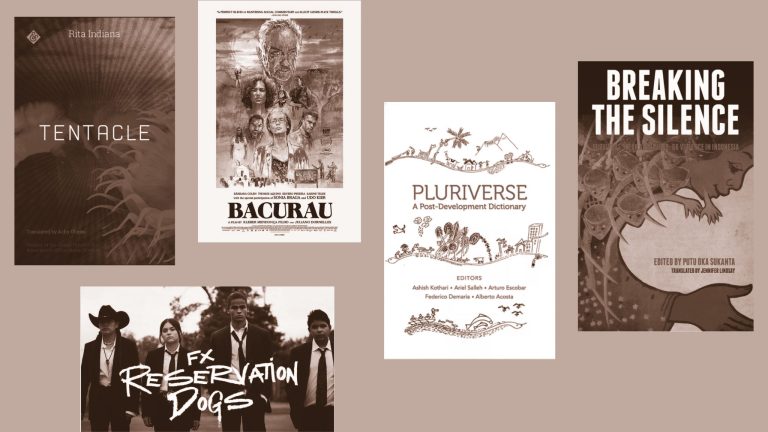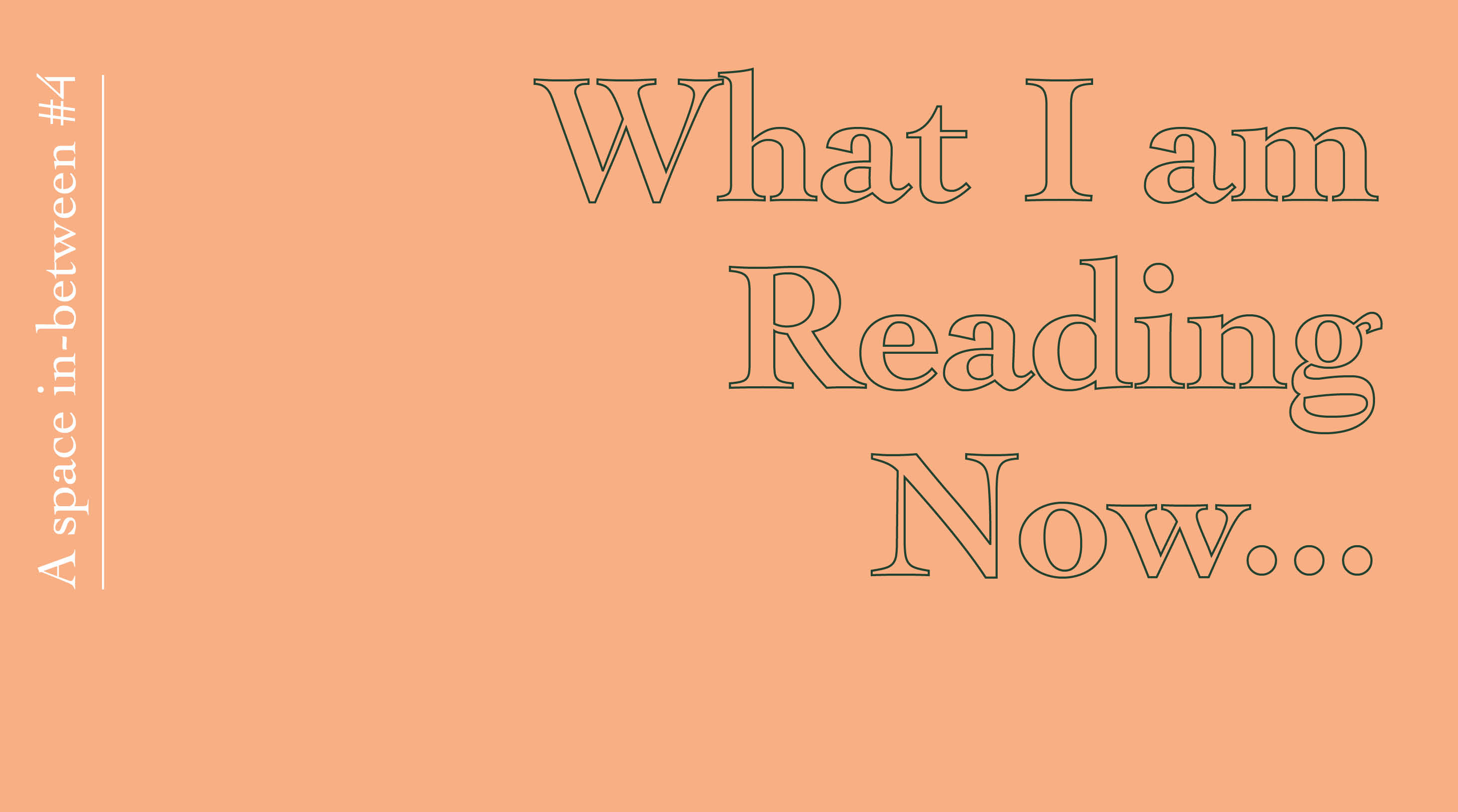What I am Reading Now…
Khairani Barokka
April 2022
Have you ever watched a film and thought ‘We are so lucky to have this in the world’? One of the texts I’ve found most relevant to extractive colonial capitalism, matching reality’s brutal conditions, is Bacurau, directed by Kleber Mendonça Filho and Juliano Dornelles. Set in Pernambuco, Brazil, it doesn’t give a damn about genre classification, and is brutal, cathartic, communal and worth every cheer. Since seeing it a year or so ago, I’ve thought of so many aspects of it so often—a guidepost for igniting fervor through art. A must-see.
The film, to my mind, has a soul sibling in Tentacle, by Rita Indiana, translated by Achy Obejas. In the future, Acilde Figueroa is a maid in the Dominican Republic who holds the predestined key to local environmental salvation. A time-travelling paragon of climate fiction, I recommend this to everyone who hasn’t read it.
Pluriverse: A Post-Development Dictionary is a continual treasure trove of ideas and movements around the world, beyond and in opposition to the so-called ‘development’ regime. In a sense, a way of connecting the previous two texts in context. I dip into this book again and again, and have learned so much—as well as feeling gratified that indigenous, grassroots movements’ wisdom, philosophies, and cosmologies are being brought to larger audiences, and placed in connection with each other, as biomes in solidarity.
Breaking the Silence: Survivors Speak about ’65-’66 Violence in Indonesia, edited by Putu Oka Sukanta and translated by Jennifer Lindsay, is a text I am getting through slowly, with reverence. In reading about collective traumas, there is always a pull to seek out survivors’ own voices. Scholar Intan Paramaditha has written about the ‘narratives of discovery’ surrounding Westerners’ writing and filmmaking on the (US-backed) ’65-’66 massacre, that is predicated on colonial tropes of exploration, othering, and consumption of trauma. Often, Indonesian research assistants and translators are not given credit due for the risks they take in helping these accounts come to the fore. Breaking the Silence is a tome of first-person accounts given dignity and foregrounded. Certainly psychologically important for those of us who grew up in Indonesia’s New Order dictatorship, and I hope for the genocide’s survivors.
Ending on a note of humor, and humor’s key role in resistance to coloniality, I’d like to signal-boost the series Reservation Dogs, created by Sterlin Harjo and Taika Waititi. It’s the story of four teens with much time to kill on a Native American reservation. Hijinks, of course, ensue, and so do encounters with spirit guides, as the quartet grapple with a friend’s death, questions of whether or not to leave home, and dilemmas of how to contribute to one’s people. There is tenderness and deep resonance amid the hilarity; the pilot is a masterclass in this. Here’s to the future, to the importance of silliness in indigenous childhoods everywhere, and to the words ‘Land Back’ displayed on more and more screens, until that return becomes reality.
Khairani Barokka is a Minang-Javanese writer and artist from Jakarta, now based in London, whose work is presented widely internationally. Among Okka’s honours, she has been Modern Poetry in Translation’s Inaugural Poet-in-Residence, a UNFPA Indonesian Young Leader Driving Social Change for arts practice and research, and Associate Artist at the UK’s National Centre for Writing. Centering disability justice as anticolonial praxis, her works include most recent book Ultimatum Orangutan (Nine Arches), shortlisted for the Barbellion Prize.
Watching
Bacurau, directed by Kleber Mendonça Filho and Juliano Dornelles (CinemaScópio Produções, 2019)
Reservation Dogs, created by Sterlin Harjo and Taika Waititi (FX Productions, 2021–present)
Reading
Tentacle, Rita Indiana, ‘tr. Achy Obejas (And Other Stories, 2018)
Pluriverse: A Post-Development Dictionary, Ashish Kothari, Ariel Salleh, Arturo Escobar, Federico Demaria, Alberto Acosta (Eds.) (Tulika Books, 2019)
Breaking the Silence: Survivors Speak about ’65-’66 Violence in Indonesia, edited by Putu Oka Sukanta and translated by Jennifer Lindsay (Monash University, 2020)

Please note the views published in What I am Reading Now… are personal reflections of the contributors.
These may not necessarily represent the views of the University of Dundee.
———
Previous Issue: Rabindranath X Bhose, March 2022
Next Issue: Tako Taal, May 2022
